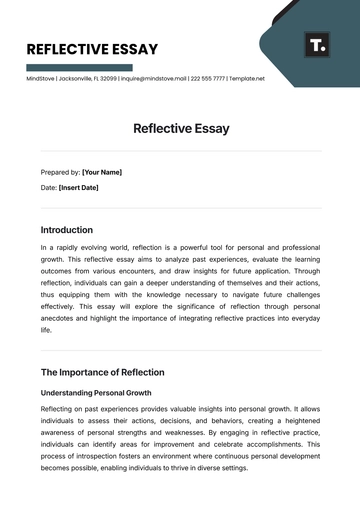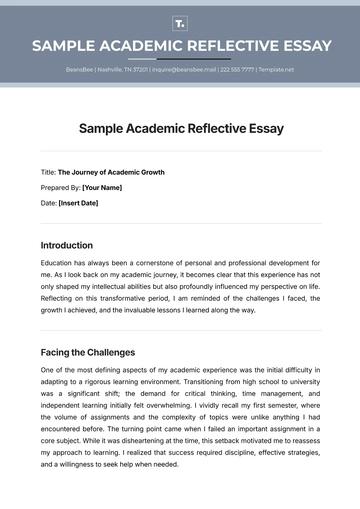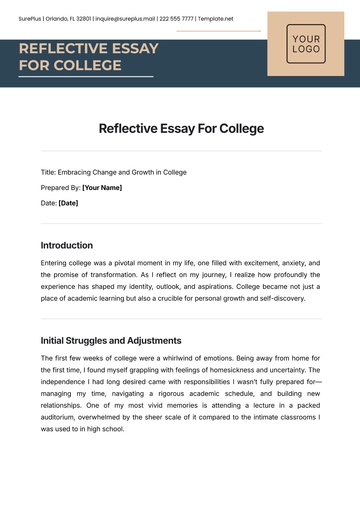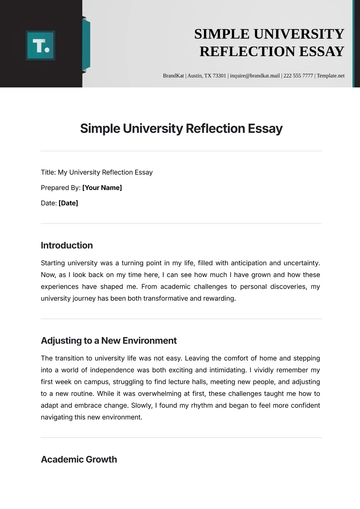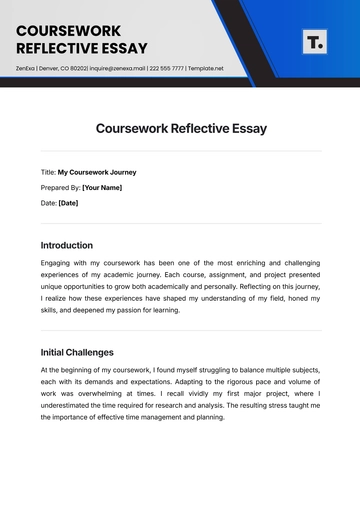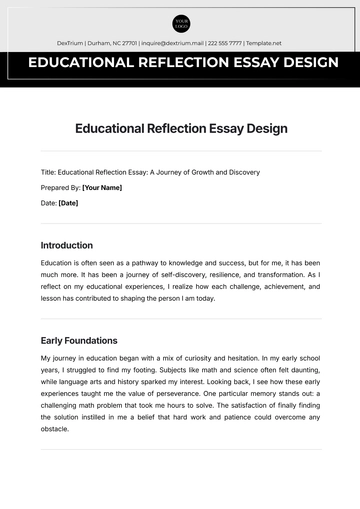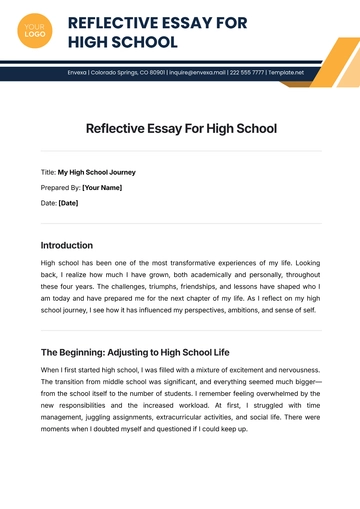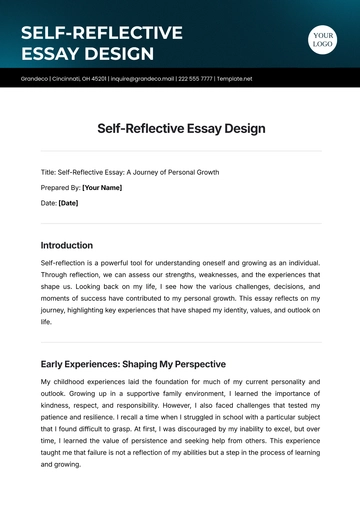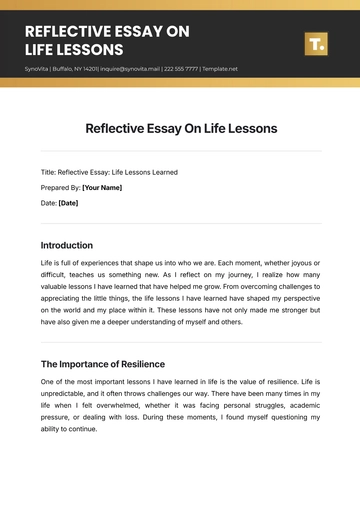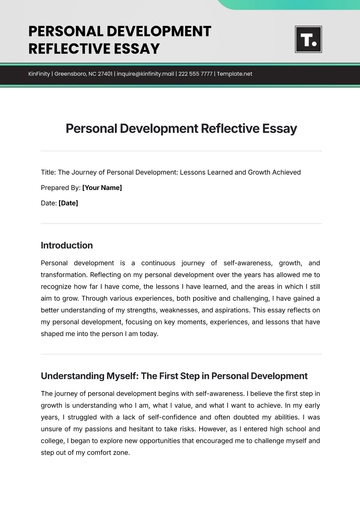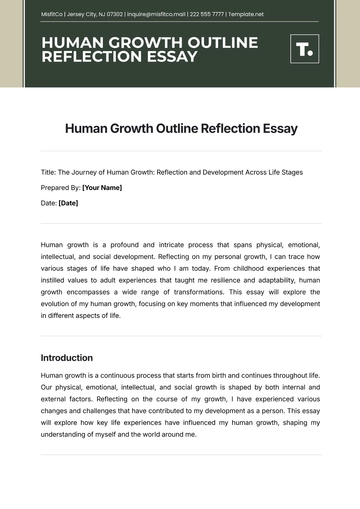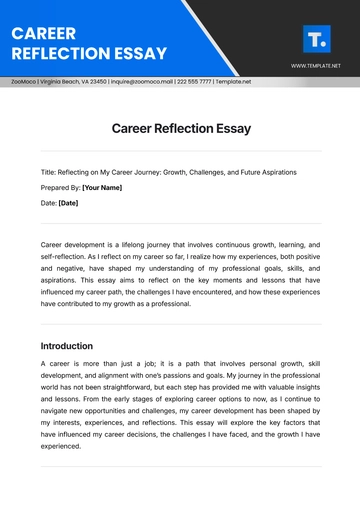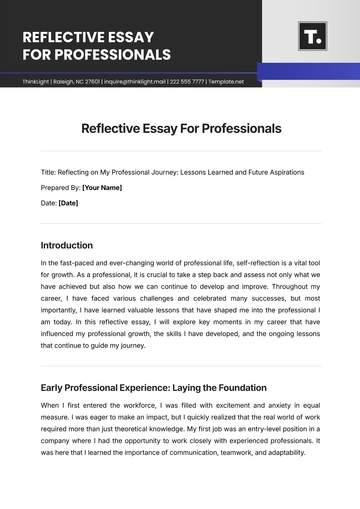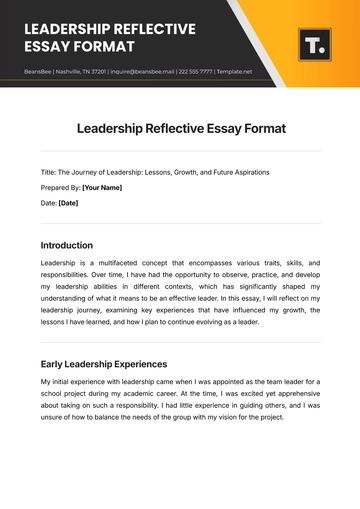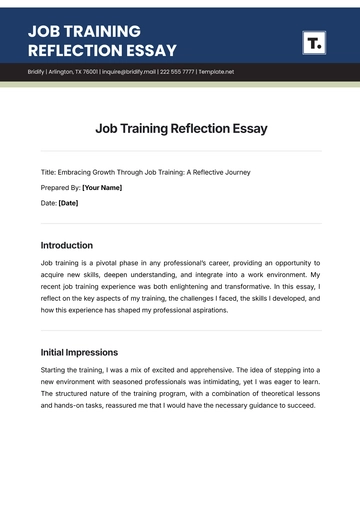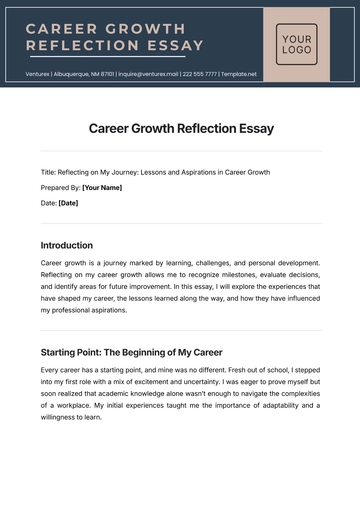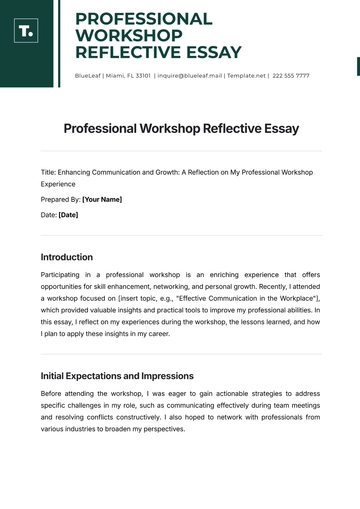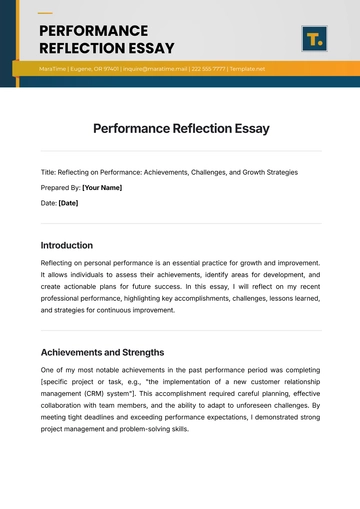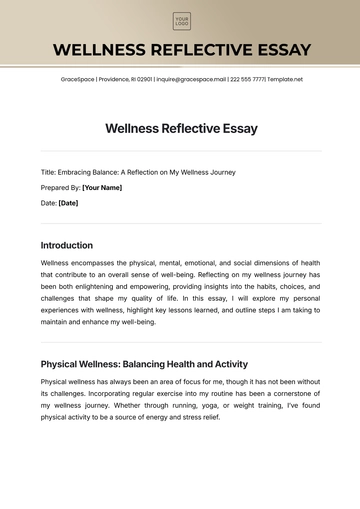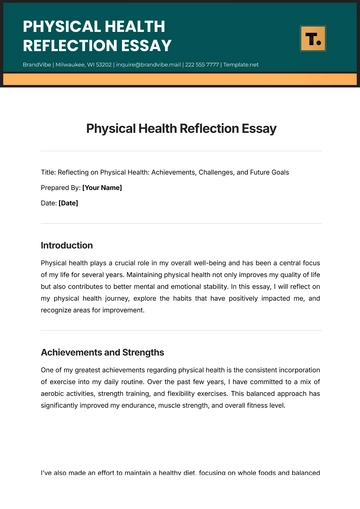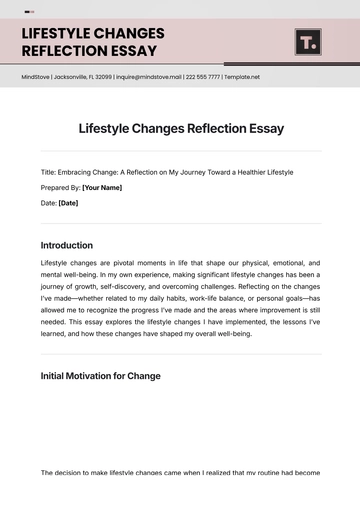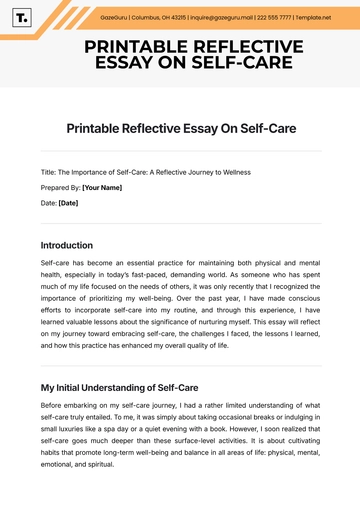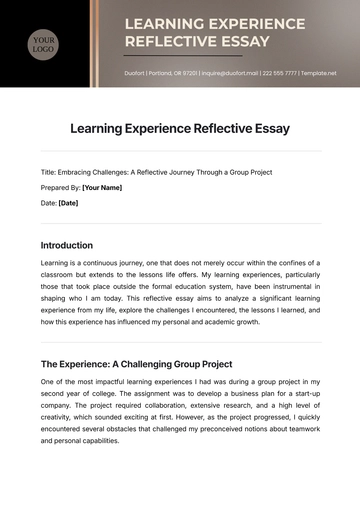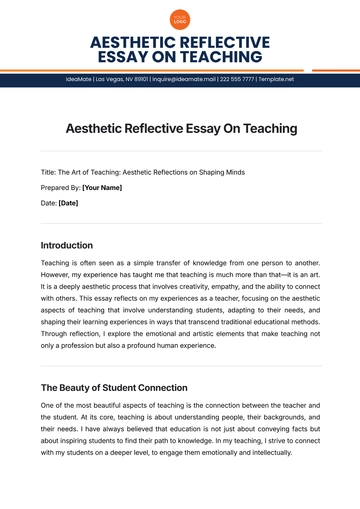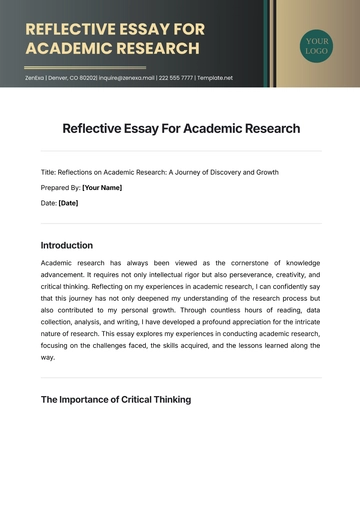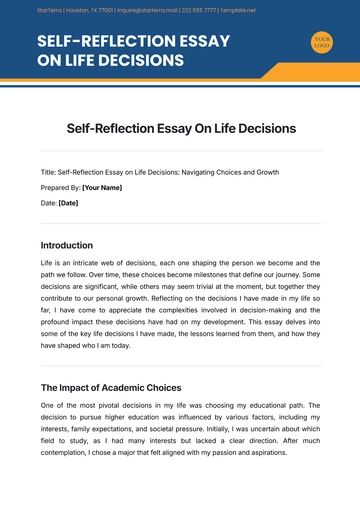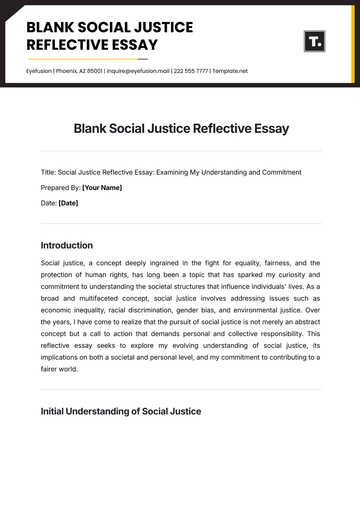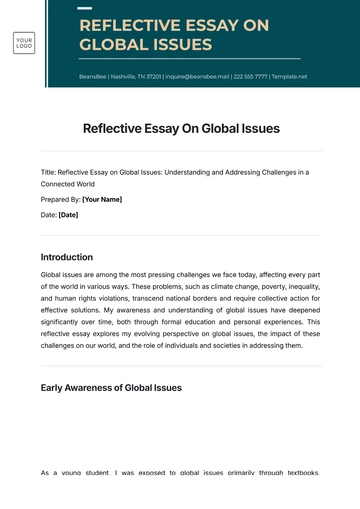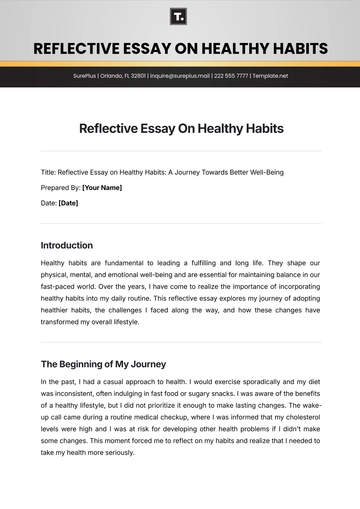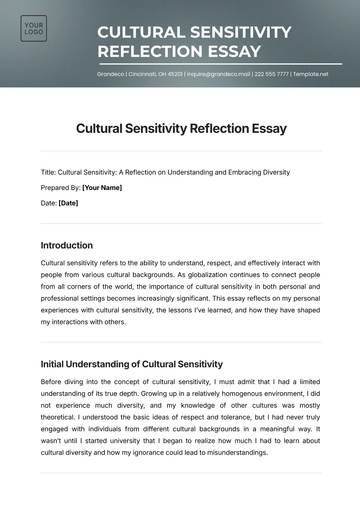Free Leadership Reflective Essay Format
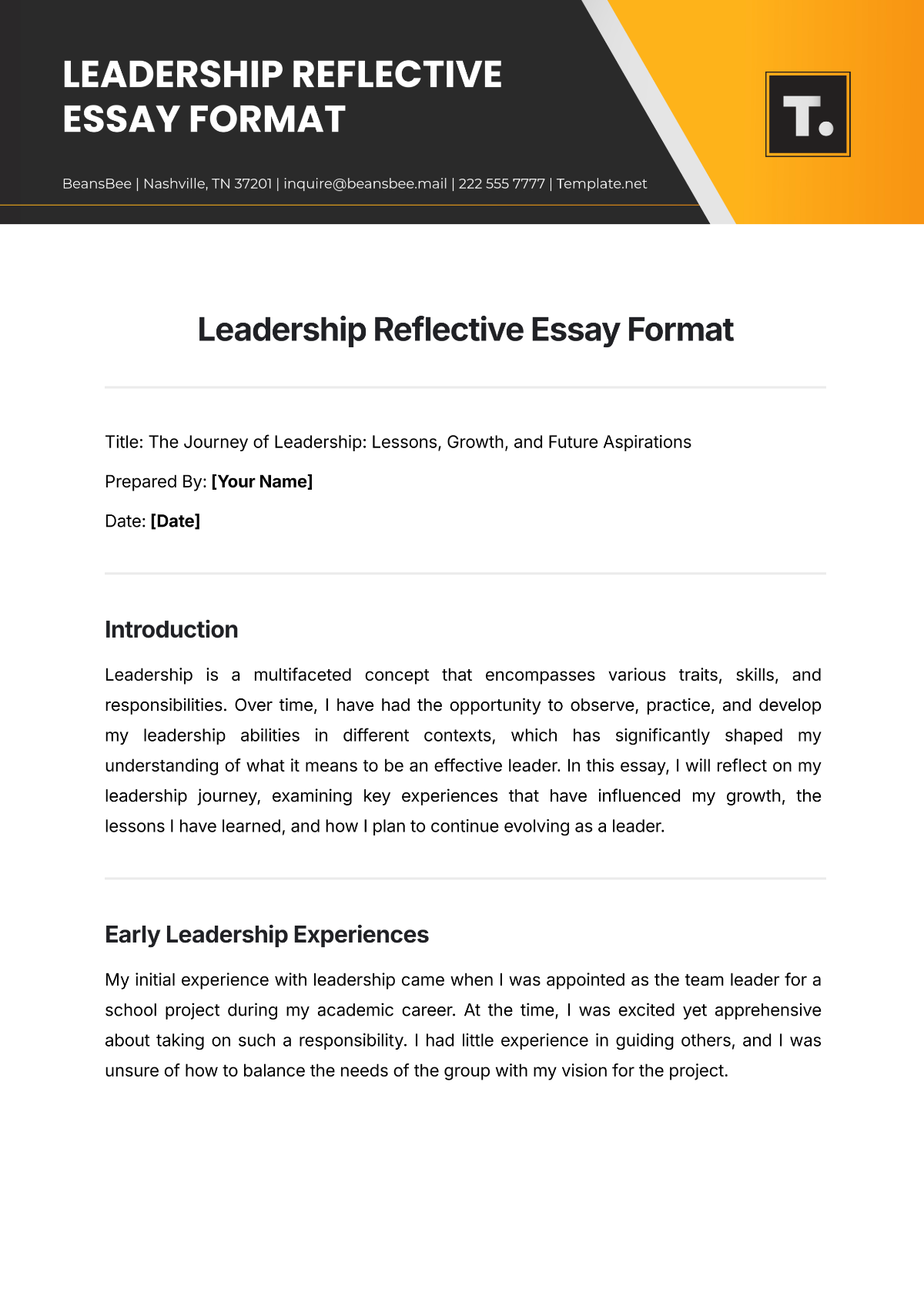
Title: The Journey of Leadership: Lessons, Growth, and Future Aspirations
Prepared By: [Your Name]
Date: [Date]
Introduction
Leadership is a multifaceted concept that encompasses various traits, skills, and responsibilities. Over time, I have had the opportunity to observe, practice, and develop my leadership abilities in different contexts, which has significantly shaped my understanding of what it means to be an effective leader. In this essay, I will reflect on my leadership journey, examining key experiences that have influenced my growth, the lessons I have learned, and how I plan to continue evolving as a leader.
Early Leadership Experiences
My initial experience with leadership came when I was appointed as the team leader for a school project during my academic career. At the time, I was excited yet apprehensive about taking on such a responsibility. I had little experience in guiding others, and I was unsure of how to balance the needs of the group with my vision for the project.
One of the first challenges I faced was managing different personalities within the team. Some members were eager to contribute, while others were more reserved. I realized that effective leadership wasn’t about making all the decisions myself but about understanding the strengths and weaknesses of each team member and facilitating a collaborative approach. By communicating openly with my team, setting clear expectations, and encouraging everyone to share their ideas, I learned that fostering a sense of inclusion and trust was essential for success. This experience taught me the importance of emotional intelligence in leadership—being aware of and responsive to others' needs and emotions can make a significant difference in the overall dynamics of a group.
Leadership in Professional Settings
As I transitioned into the professional world, I was presented with new opportunities to lead teams and manage projects. One of the most formative experiences in my leadership development came when I was given the responsibility of overseeing a cross-functional team on a major company initiative. This experience was different from my school project leadership role, as it involved balancing the demands of a corporate environment and handling more complex decision-making processes.
A key lesson I learned during this time was the importance of strategic thinking. While I had always been able to manage tasks and motivate people, leading in a business context required a deeper understanding of how my team's work aligned with broader organizational goals. I had to learn how to prioritize tasks effectively, delegate responsibilities based on individuals' strengths, and make decisions that would have long-term impacts on the company. One challenge I faced was managing conflicts within the team. Some members disagreed on the best approach to solve a problem, which led to tension and frustration. In this situation, I learned that leadership wasn’t about avoiding conflict but managing it constructively. By facilitating open dialogue and mediating discussions, I was able to help the team reach a consensus that allowed us to move forward. This experience reinforced my belief that effective leadership is often about finding solutions through collaboration and compromise.
Self-Reflection and Leadership Style
As I continued to gain experience in various leadership roles, I began to reflect on my leadership style. I realized that I naturally lean towards a transformational leadership approach, which focuses on inspiring and motivating others to achieve their full potential. This style involves setting a compelling vision, empowering others, and creating an environment that encourages innovation and growth.
However, I also recognized the need for balance. While transformational leadership is powerful in inspiring teams, there are times when a more transactional approach is necessary. For example, in situations requiring quick decision-making or when dealing with operational challenges, I found that being more directive and results-oriented could drive efficiency and clarity. The ability to adapt my leadership style to different situations has become a key part of my leadership growth.
Additionally, I have become increasingly aware of the importance of ethical leadership. As a leader, I must demonstrate integrity, fairness, and transparency in all my actions. This means being honest with my team, taking responsibility for my decisions, and ensuring that everyone has an equal opportunity to contribute and succeed. I believe that a leader's actions should align with the values they promote, and maintaining ethical standards is crucial for fostering trust and respect within the team.
Lessons Learned
Reflecting on my leadership journey, I have learned several important lessons that continue to influence my approach to leadership. First, leadership is not a position, but a process. It is about guiding others toward a shared goal while continuously evolving and adapting to new challenges. A leader’s role is to empower and inspire, not to control or dictate.
Second, I have learned the significance of communication in leadership. Clear, honest, and empathetic communication is essential for building trust, aligning expectations, and fostering collaboration within a team. As a leader, it is crucial to listen actively to others, understand their perspectives, and provide constructive feedback.
Third, I have learned the value of resilience. Leadership often involves facing setbacks and overcoming obstacles, and a successful leader must be able to persevere through difficult times. A key part of resilience is maintaining a positive attitude and motivating the team, even when things don't go as planned.
Finally, I have learned that leadership is a lifelong journey of growth and self-improvement. There is always room for development, whether it's acquiring new skills, learning from mistakes, or seeking feedback from others. The most effective leaders are those who are committed to ongoing learning and personal development.
Conclusion
In conclusion, my experiences as a leader have taught me valuable lessons that continue to shape my leadership style. From early leadership challenges to professional growth and self-reflection, I have learned that leadership is about more than just achieving results—it is about inspiring and empowering others to reach their potential while maintaining integrity, communication, and resilience. As I move forward in my leadership journey, I am committed to refining my skills, adapting to new situations, and continuously striving to be a more effective and ethical leader.
- 100% Customizable, free editor
- Access 1 Million+ Templates, photo’s & graphics
- Download or share as a template
- Click and replace photos, graphics, text, backgrounds
- Resize, crop, AI write & more
- Access advanced editor
